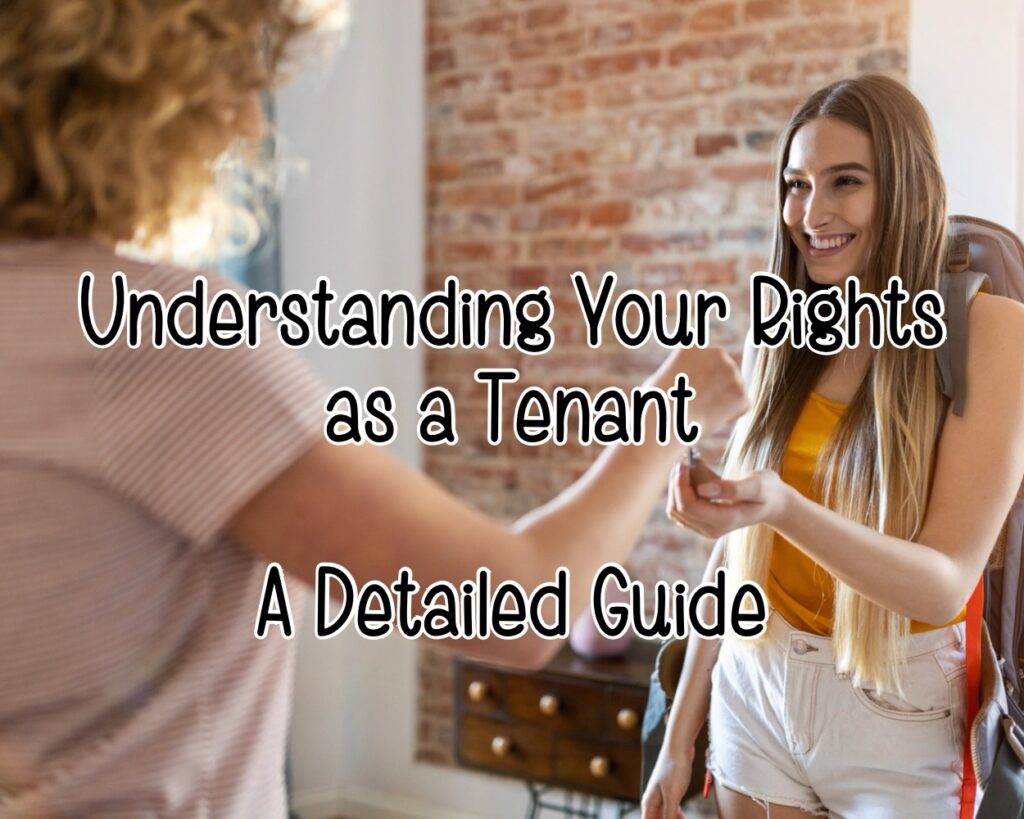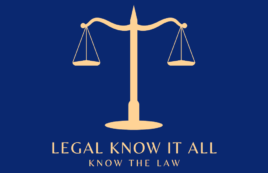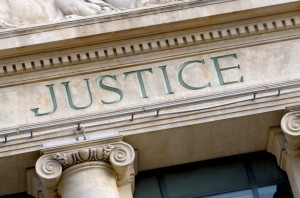As a tenant, it’s crucial to understand your rights to ensure a fair and safe living environment. These rights are typically governed by state and local laws, which can vary, but there are common principles that apply in most areas. This article aims to provide a clear and detailed overview of the fundamental rights you have as a tenant.
Right to a Habitable Environment
- Safe and Sanitary Conditions: You have the right to a living space that is safe, clean, and meets basic sanitary standards.
- Essential Services: This includes access to running water, heating, and electricity.
Right to Privacy
- Reasonable Notice Before Landlord Entry: Landlords typically must provide notice (usually 24 hours) before entering your rental unit, except in emergencies.

Right to Non-Discriminatory Treatment
- Fair Housing: The Fair Housing Act protects tenants from discrimination based on race, color, religion, sex, national origin, disability, and familial status.
Right to a Fair Lease Agreement
- Clear Terms: The lease should clearly state all terms, including rent, duration of tenancy, and rules regarding deposits.
- Legal Compliance: Lease terms must comply with local and state housing laws.
Right to Repairs
- Landlord’s Responsibility: Landlords are generally responsible for maintaining the property and making necessary repairs.
- Requesting Repairs: Tenants have the right to request repairs and expect them to be done in a timely and effective manner.
Right to Withhold Rent or “Repair and Deduct”
- In Some Jurisdictions: If a landlord fails to make critical repairs, tenants might have the right to withhold rent or pay for repairs themselves and deduct the cost from their rent (check local laws).
Right to Security Deposit Return
- Refund of Deposit: You are entitled to the return of your security deposit, minus any deductions for damage beyond normal wear and tear, within a specific time frame after moving out.
Right to Renew a Lease
- Renewal Terms: Depending on your lease and local laws, you may have the right to renew your lease. Some areas have rent control or stabilization laws that provide additional protections.
Right to Fair Eviction Process
- Legal Process: Landlords must follow a legal process for eviction, which typically includes proper notice and the opportunity for the tenant to address the issue.
Right to Sue
- Legal Action: If your rights are violated, you have the right to sue your landlord for breaches such as failure to make repairs or illegal eviction attempts.
Understanding your rights as a tenant is key to protecting yourself and ensuring a positive rental experience. If you believe your rights have been violated, consider seeking advice from a tenant’s rights group or a legal professional. Remember, knowledge is power, especially when it comes to navigating the complexities of tenant-landlord relationships.
Right to a Written Notice for Rent Increases
- Advance Notice: Most states require landlords to provide written notice before increasing rent, typically 30 days in advance, but this can vary.
Right to Live Free from Harassment
- Protection from Landlord Harassment: You have the right to live without harassment from your landlord. This includes privacy violations, withholding services, or threatening eviction without cause.
Right to Accommodations for Disabilities
- Reasonable Accommodations: Under the Fair Housing Act, landlords must make reasonable accommodations for tenants with disabilities. This could include physical modifications to the property or changes in policies.
Right to a Fair Credit Reporting
- Accurate Reporting: Landlords must accurately report your rental and payment history to credit bureaus, if they choose to report at all.
Right to Terminate Lease Early in Special Circumstances
- Special Provisions: In certain situations, such as military deployment or domestic violence, tenants may have the right to terminate their lease early without penalty.
Right to a Fair Application Process
- Non-Discriminatory Screening: Application processes should be fair and consistent for all potential tenants, and screening criteria should be non-discriminatory.
Right to Know About Environmental Hazards
- Disclosure of Hazards: Landlords must disclose known environmental hazards like lead paint or asbestos.
Right to Have Guests
- Reasonable Guest Policy: Tenants generally have the right to have guests over, though landlords can set reasonable restrictions in the lease agreement.
Right to Organize or Join a Tenants’ Union
- Collective Action: Tenants have the right to organize or join a tenants’ union or association without fear of retaliation from the landlord.
Right to Receive a Copy of the Lease
- Lease Documentation: You have the right to receive a copy of your signed lease agreement.
Dealing with Issues and Disputes
- Seeking Resolution: If you face issues with your landlord, it’s often best to try to resolve them through communication or mediation.
- Legal Assistance: For unresolved disputes or if you feel your rights are being violated, consider seeking legal assistance. Many communities offer resources for tenants through legal aid societies or tenant advocacy groups.
As a tenant, you have numerous rights designed to protect you and ensure a fair, safe, and enjoyable living experience. Being aware of these rights and understanding how to exercise them can significantly impact your tenancy’s quality and your relationship with your landlord. Always stay informed about the specific laws and regulations in your state or municipality, as tenant rights can vary widely depending on your location.
Can My Landlord Enter My Apartment Without Permission?
Answer: Generally, landlords must provide notice (usually 24 hours) before entering your rental unit, except in emergencies or if it’s outlined differently in your lease. However, this can vary by state.
What Can I Do If My Landlord Refuses to Make Necessary Repairs?
Answer: If your landlord refuses to make necessary repairs, you can put your request in writing and send it via certified mail. If there’s still no response, you may contact local housing authorities or seek legal advice. In some states, you have the right to withhold rent or make repairs and deduct the cost, but this should be done cautiously and in compliance with local laws.
Is My Landlord Allowed to Raise My Rent?
Answer: Yes, landlords can raise the rent, but they must provide proper notice (usually 30 days) and adhere to any limits or regulations set by local rent control laws. Increases should also be outlined in your lease agreement.
Can I Be Evicted Without a Court Process?
Answer: No, landlords must follow a legal eviction process, which typically includes providing notice and the opportunity for the tenant to rectify the issue. If the tenant does not comply, the landlord must then file an eviction lawsuit.
How Much Security Deposit Can My Landlord Charge?
Answer: The amount a landlord can charge for a security deposit varies by state. Some states have a maximum limit, often equivalent to one or two months’ rent.
What Should I Do If I Face Discrimination from My Landlord?
Answer: If you believe you are facing discrimination, you can file a complaint with the U.S. Department of Housing and Urban Development (HUD) or consult with a legal professional specializing in tenant rights.
Are Landlords Required to Provide a Reason for Not Renewing a Lease?
Answer: In most cases, landlords are not required to provide a reason for not renewing a lease unless specified by local laws or if you live in a rent-controlled or stabilized unit.
Can My Landlord Charge Me for Normal Wear and Tear?
Answer: No, landlords cannot charge for normal wear and tear. Charges can only be made for damage that goes beyond normal usage.
What Are My Rights Regarding Privacy and Surveillance?
Answer: Tenants have the right to privacy in their rental unit. Landlords cannot use surveillance in a way that violates this right, such as placing cameras inside the unit.
Can I Break My Lease Early?
Answer: Breaking a lease early can have consequences, such as losing your security deposit or being charged additional fees. However, there are legal justifications for breaking a lease in certain situations, like military service or domestic violence. Always review your lease agreement and consult with a legal professional.
How Can I Ensure My Security Deposit is Returned?
Answer: To ensure the return of your security deposit, document the condition of the rental unit when you move in and move out, complete any required cleaning or repairs, and provide your landlord with your forwarding address. If there are disputes, you may need to seek legal assistance.
Understanding your rights as a tenant empowers you to navigate your rental experience confidently and address any issues that may arise effectively. Always stay informed and seek professional advice when necessary to protect your interests.
As an Amazon Associate we earn from qualifying purchases through some links in our articles.




